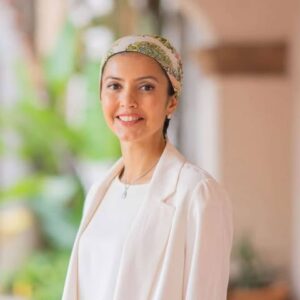Dr. Sadikah Behbehani,
Sadikah Behbehani – Endometriosis Specialist
Summary: Dr Sadikah Behbehani is a dedicated endometriosis specialist based in Costa Mesa, California, known for her compassionate and expert care. Dr Sadikah Behbehani focuses on thorough endometriosis excision surgery to remove the disease at its roots while prioritizing fertility preservation. Dr Behbehani carefully removes endometriosis from critical areas such as the fallopian tubes, ovaries, bowel, bladder, and diaphragm, aiming to minimize damage and support patients’ reproductive health. She emphasizes understanding the embryologic origins of endometriosis to provide personalized treatment. After surgery, Dr Sadikah Behbehani recommends medication only when necessary, such as muscle relaxants or nerve pain treatments, avoiding narcotics entirely. For persistent pain, Dr Behbehani adopts a multidisciplinary approach, coordinating with specialists in pain management, physical therapy, and gastroenterology, while closely monitoring each patient’s recovery with ongoing care every few months. Her patient-centered philosophy ensures compassionate, tailored support for lasting relief.
City: Costa Mesa, California
Philosophy of Endometriosis Care: It doesn’t matter where it came from; what matters is that it’s removed. Endometriosis, like cancer, can spread via multiple channels. Also, pleuripotent stem cells in the pleura and peritoneum can lead to its development. Most endometriosis patients are born with these cells that differentiate into endometriosis with hormone stimulation. It’s nothing that women did that led to their development. We have to understand embryologic origin to understand endometriosis growth because endometriosis can be associated with congenital anomalies in the genitourinary and reproductive organs.
What type of surgery do you perform for endometriosis: I perform endometriosis excision surgery to remove the endo from its roots, but I also focus on preserving fertility. I remove endometriosis from around the fallopian tubes and ovaries routinely. My surgical strategies focus on minimizing damage to the ovaries to help preserve ovarian reserve and help with future fertility. I also perform tubal surgery when necessary. It’s important to appropriately excise the disease while minimizing damage to reproductive organs. I also excise endometriosis from the bowel, bladder, and diaphragm and perform an appendectomy when necessary.
Medication: I only recommend medication after surgery after we’ve ensured that all endometriosis has been appropriately excised. For bladder or muscular spasms, I prescribe cyclobenzaprine. For nerve pain, I prescribe gabapentin. I have a good referral team and, when necessary, will refer to pain management to take care of residual pain from endometriosis nerve, and muscle damage. I never prescribe narcotics, and I don’t send my patients to anyone who will.
Approach to Persistent Pain After Surgery: I work with them until their pain reaches a tolerable level. I refer them to specialists as needed (pain management, GI, PT), but I continue to oversee their treatment plan with visits q3-6 months.


comments are closed .